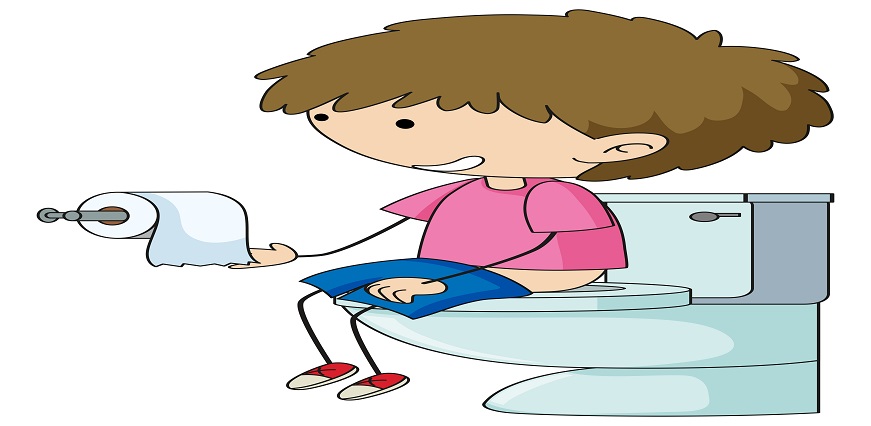





No lab centers are available in this city

Have you ever noticed blood in your stool? As alarming as it may sound, this is a common symptom that many people experience. Blood in stool can be caused by various factors and can range from minor to severe conditions. In this blog post, we will dive into the causes of blood in stool, its symptoms, when to see a doctor, prevention tips, and treatment options available. So let's get started!
Blood in stool, also known as rectal bleeding, is a condition where blood appears in the feces or when wiping after bowel movements. It can be caused by various factors ranging from minor to severe conditions.
Blood in stool is a concerning symptom that should never be ignored. It can be caused by a variety of factors such as hemorrhoids, infections, inflammatory bowel disease (IBD), anal fissures, polyps or tumors in the colon or rectum.
Hemorrhoids are one of the most common causes of blood in stool, which occurs due to swelling and inflammation of veins around the anus. Infections from viruses or bacteria like Salmonella and Shigella may cause diarrhea with bloody stools.
Inflammatory bowel disease (IBD) like Crohn's disease and ulcerative colitis can trigger inflammation throughout the digestive tract causing symptoms such as abdominal pain, diarrhea with blood or mucus, and fatigue among others.
Anal fissures are small tears on the lining tissue surrounding the anus that may bleed during bowel movements. Polyps or tumors found in the colon or rectum could also be responsible for bleeding stools.
Other factors that could lead to blood in stool include diverticulitis – an infection of pouches formed along intestinal walls- and certain medications like aspirin and anticoagulants.
Symptoms of blood in stool can vary depending on the underlying cause. Some people may notice bright red blood on the surface of their stool or toilet paper after wiping, while others may see dark, tarry stools. It is important to note that not all rectal bleeding is visible and some people may experience occult bleeding that cannot be seen with the naked eye.
In addition to rectal bleeding, other symptoms of blood in stool can include abdominal pain, diarrhea or constipation, nausea or vomiting, and unexplained weight loss. These symptoms are often indicative of an underlying gastrointestinal condition such as inflammatory bowel disease (IBD), diverticulitis, or colorectal cancer.
It is important to seek medical attention if you experience any persistent symptoms of blood in stool as they could be a sign of a serious health issue. Your doctor will perform a physical exam and run diagnostic tests to determine the cause of your symptoms and develop an appropriate treatment plan.
If you notice blood in your stool, it's important to take action. While some causes of bloody stools may be minor and resolve on their own, others can be more serious and require medical attention.
One reason to see a doctor is if the bleeding is persistent or severe. Passing large amounts of blood or having frequent episodes of bloody stools could indicate a more serious condition such as inflammatory bowel disease (IBD) or colorectal cancer.
Another reason to seek medical help is if you experience additional symptoms along with the bleeding. These symptoms can include abdominal pain, cramping, diarrhea or constipation, nausea or vomiting, fever, chills, fatigue or weakness.
Preventing blood in stool is all about maintaining a healthy lifestyle and taking care of your digestive system. One of the most important things you can do to prevent blood in stool is to eat a healthy diet that's rich in fiber. Fiber helps keep your bowel movements regular, which can reduce the risk of constipation and straining on the toilet.
You should also make sure to drink plenty of water every day, as dehydration can lead to hard stools and constipation. Regular exercise is another key factor in preventing blood in stool, as it helps improve blood circulation and keeps your digestive system functioning properly.
Treatment for blood in stool depends on the underlying cause. In cases of hemorrhoids or anal fissures, over-the-counter creams and ointments can be used to relieve symptoms such as pain and itching.
If the bleeding is caused by inflammatory bowel disease (IBD), treatment may include medication to reduce inflammation, diet changes, and sometimes surgery if necessary.
For colorectal cancer, treatment options depend on how advanced the cancer is. Surgery is often needed to remove the tumor along with chemotherapy or radiation therapy to kill any remaining cancer cells.
Blood in stool is a symptom that should not be taken lightly. It can indicate various underlying health issues, ranging from minor ones like hemorrhoids to serious conditions like colorectal cancer. Early diagnosis and treatment are essential for the successful management of these conditions.
It's always best to seek medical attention if you experience blood in your stool or any other unusual symptoms. Your doctor will perform tests and examinations to determine the cause of the bleeding and provide appropriate treatment options.
 Allergy Test
Allergy Test
 Anemia Test
Anemia Test
 Auto immune
Auto immune
 Blood disorder
Blood disorder
 Bone and Joint
Bone and Joint
 Cancer Test
Cancer Test
 Cardiology Test
Cardiology Test
 Covid Recovery
Covid Recovery
 Dengue Test
Dengue Test
 Depression
Depression
 Diabetes Test
Diabetes Test
 Fatigue
Fatigue
 Fever Test
Fever Test
 Full body
Full body
 Gastro Test
Gastro Test
 Gastrointestinal
Gastrointestinal
 Gynaecology Test
Gynaecology Test
 Heart Test
Heart Test
 HIV Test
HIV Test
 Hormone Test
Hormone Test
 Hypertension
Hypertension
 Immunity Test
Immunity Test
 Infectious Disease
Infectious Disease
 Infertility Test
Infertility Test
 Influenza Test
Influenza Test
 Iron Test
Iron Test
 Kidney Test
Kidney Test
 Liver Test
Liver Test
 Lung Test
Lung Test
 Nephrology
Nephrology
 Obesity
Obesity
 Orthopedics Test
Orthopedics Test
 Physician
Physician
 Pollution Health Checkup
Pollution Health Checkup
 Pregnancy Test
Pregnancy Test
 Prostate Test
Prostate Test
 Senior Citizen Test
Senior Citizen Test
 STD Test
STD Test
 Thyroid Test
Thyroid Test
 Tuberculosis Test
Tuberculosis Test
 Vitamin Test
Vitamin Test
 Women Health Test
Women Health Test
Sign up takes less than 60 secs and gives you access to your offers, orders and lab tests.
Looks like you are not registered with us. Please Sign up to proceed
OTP will be sent to this number by SMS
We have successfully received your details. One of the agents will call you back soon.
 To reach our help desk call 9213188888
To reach our help desk call 9213188888
No Lab Centers are available in this city
Looks like you are not registered with us. Please Sign up to proceed
OTP will be sent to this number by SMS
Not Registered Yet? Signup now.Looks like you are not registered with us. Please Sign up to proceed





 7982100200
7982100200.png)